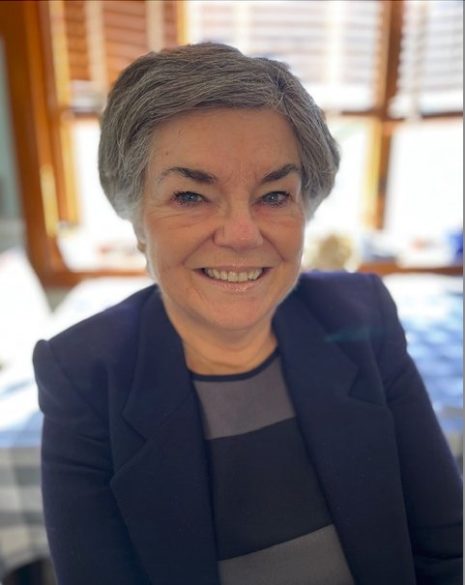For the Journey
By Effie Caldarola
As my mom grew older, she became less mobile. When we’d visit the mall she wouldn’t walk to the parking lot; we’d find a secure bench outside a store, and she would wait there for us to bring the car around.
Often, when we’d drive up, Mom would be engaged in conversation with someone, sometimes another elderly person sharing the bench. Mom would tell us what she’d learned of that person’s life, and we’d chuckle about her uncanny ability to extract information from strangers – and cringe a little to imagine what she might have shared about us.
Most of us have seen that television commercial where an insurance company, tongue in cheek, explains how new homeowners shouldn’t become their parents. Funny, yes, but I detect a whiff of ageism as the millennials need help not becoming the kind of people – like their boomer parents – who chat up someone in an elevator or attempt to help some stranger find a product on the store shelf.
Admittedly, the ad is a little exaggerated, but is friendliness such a bad thing?
When I visited my daughter on the East Coast, I would often travel along a busy river walk near her home. It was striking to me how no one spoke. Everyone looked determinedly straight ahead. I thought perhaps I’d been a native Midwestern and an Alaskan for too long.

Then, I moved to a small eastern town. Everyone walks here and, almost to a person, everyone says hello. I’ve had 15-minute conversations with strangers who stop to chat. A person I’d never met introduced herself and gave me a treat to feed her little dog. A nanny stopped with her stroller and pointed to a house where she noticed Amazon packages had sat for several days. Should we call in a wellness check? A young man stopped to converse about a house for sale on my block.
What was going on here? In this town, an historic town with lots of big old houses, the population seems racially homogeneous, fairly prosperous and similar in many ways. Does this make people feel safer and more open? The river walk, on the other hand, was a much more diverse mix, from different neighborhoods. And in all fairness, those on the river walk were perhaps more focused on exercise than the neighborhood walkers.
Still, what are the barriers to our friendliness?
I thought about this at Sunday’s greeting of peace at Mass. Still in no-touch COVID mode, people turn, give a little wave and mouth the word “peace.” I smile, but despite our split-second attention to each other, I know that when I leave Mass I won’t know those folks any better.
Coffee and donuts, anyone?
I assure you, I’m not the person who starts a conversation on an airplane. I say hello and pull out my book. I do not chat people up on elevators.
But neither do I want to create a shield to protect me from others. I want to be aware of the person who needs help, who appears ill, or who just needs a friendly smile. I don’t want to fear diversity, or become that person who mutters, “I don’t want to get involved.”
Despite the fact that in our country, people have been shot for turning up the wrong driveway, or for being a Black person shopping for groceries, I want to be with those who notice and care about each other, and act with friendliness. I think this is part of our faith commitment, our seeing Christ in each person we encounter.
Perhaps I am becoming my mother, after all. And you know what? That’s a good thing.
(Effie Caldarola is a wife, mom and grandmother who received her master’s degree in pastoral ministry from Seattle University.)
